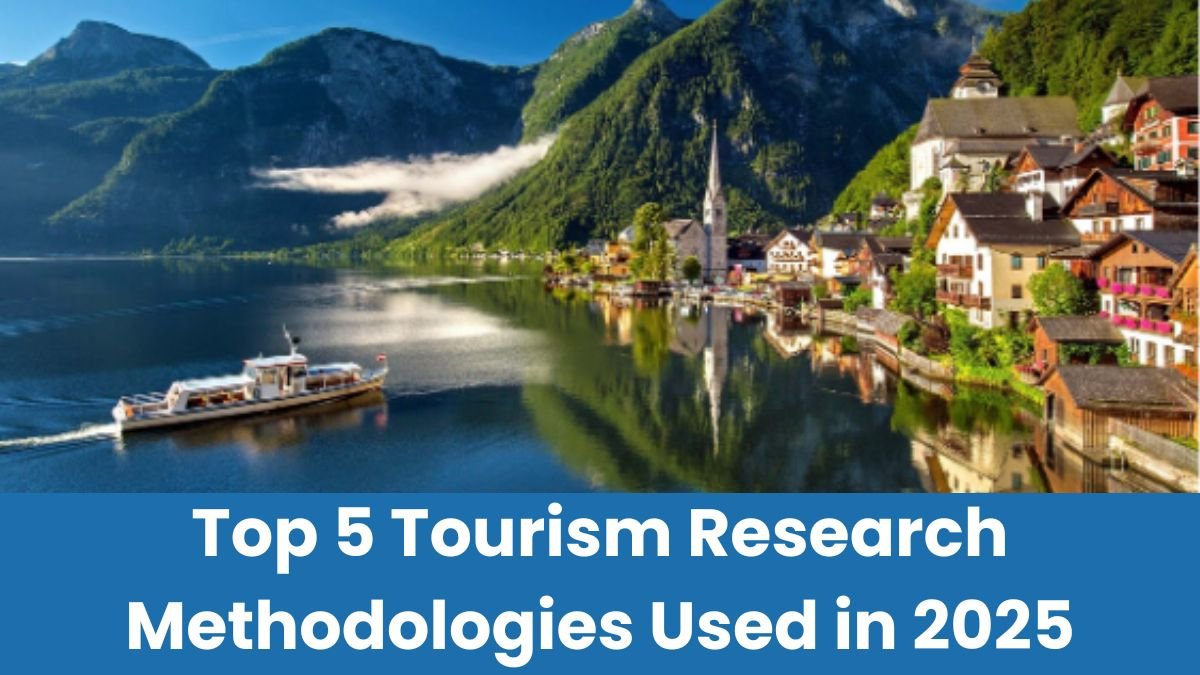Tourism is a sector that changes every day Sometimes new trends come, sometimes people’s preferences change and sometimes global conditions change the entire nature of tourism. In such a situation, it becomes important to understand how to take the right decisions to move forward in this field. The answer to this question is – tourism research methods.
In 2025, the tourism industry has adopted many modern methods of research, through which market understanding, consumer behavior and popularity of the destination are being accurately analyzed. In this article, we will know about five such major research methods that are contributing the most in giving direction to today’s tourism industry.
Survey Research
In 2025, survey will no longer be restricted to paper survey. In the present day online designing survey forms such as Google Forms, Typeform, and chatbots with AI are becoming popular. Based on such tools, the tourism agencies are gathering the preferences and altruisms of their customers in large numbers; the experience of the customers in travelling, the quality of services they receive and their recommendations on service improvement.
Why it matters:
- It is the most direct way to get customer opinion.
- It can measure the level of customer satisfaction.
- It helps in designing new services.
Scenario: When everybody is complaining that the place is not clean, the local tourism department will be able to rectify it on the basis of such responses.
Focus Group Discussion (FGD)
A focus group will be a small random sample of either tourists, tourism service providers or policy makers that are called to freely debate a specific topic. They are also adopting this method in the year 2025 using virtual meetings and online forums.
Why it matters:
- It helps in understanding in depth what consumers feel.
- It allows to analyze opinions and sentiments that are not seen in general surveys.
- Very useful tool for changing tourism policies.
Example: If the Government of India is considering a new tourism policy, it can first conduct focus group meetings in some major cities to get real feedback.
Data Analytics and Big Data Analytics
Data is the new ‘gold’ in 2025. The tourism industry is now using social media data, website traffic, Google trends and mobile location data to know where people like to go, what services they are booking and what they are searching for.
Why it is important:
- It helps to catch trends in real-time.
- This gives hotels, airlines and tour operators a chance to improve their services.
- It is helpful in policy making related to environment and crowd control.
Example: If traffic data in Uttarakhand in a season shows that there is a huge crowd in the Chardham Yatra, then the government can do traffic and logistics planning in advance.
Case Study Method
This method is especially used in areas where an in-depth study of a particular destination or plan is required. In a case study, the geographical, cultural, environmental and social conditions of that place are studied.
Why is it important:
- It helps to understand how a particular policy or plan worked.
- Lessons can be drawn from this for future plans.
- It holds a special place in academic tourism education.
Example: Other states can take inspiration from the case study of Rajasthan’s ‘Padharo Mhare Desh’ campaign and make their marketing strategy.
Ethnographic Research
Ethnography means the study of cultural and social behavior. The use of this method has increased a lot in 2025, especially in cultural tourism and rural tourism. In this, the researcher himself stays in an area like a tourist and communicates with the local people and understands their lifestyle.
Why is it important:
- It brings out the real story of tourist destinations.
- This method guides towards sustainable tourism.
- It assists one to learn how tourism affects the local culture.
As an example a researcher stayed in a small village in Himachal months and learnt how the homestay culture in that village is improving livelihoods of the local communities and what are its social implication thereof.
Katho: An option towards a research, towards euphoric tourism
In 2025, the concept of tourism research does not only mean data or survey. Nowadays, it is a strategic instrument that can assist to make the tourism business more integrative, balanced and competitive. The five key research procedures mentioned above will address the fact that the tourism industry will learn what the people want, identify new opportunities and achieve a balance in nature.
Conclusion:
These research methods are quite important to implement in our plans and policies and we have to do that as far as we want developing countries like India to create its own place on the world tourism map. In this way, not only the visitors will be able to have a more positive experience, but they will also enact the local people and contribute to their well-being.
